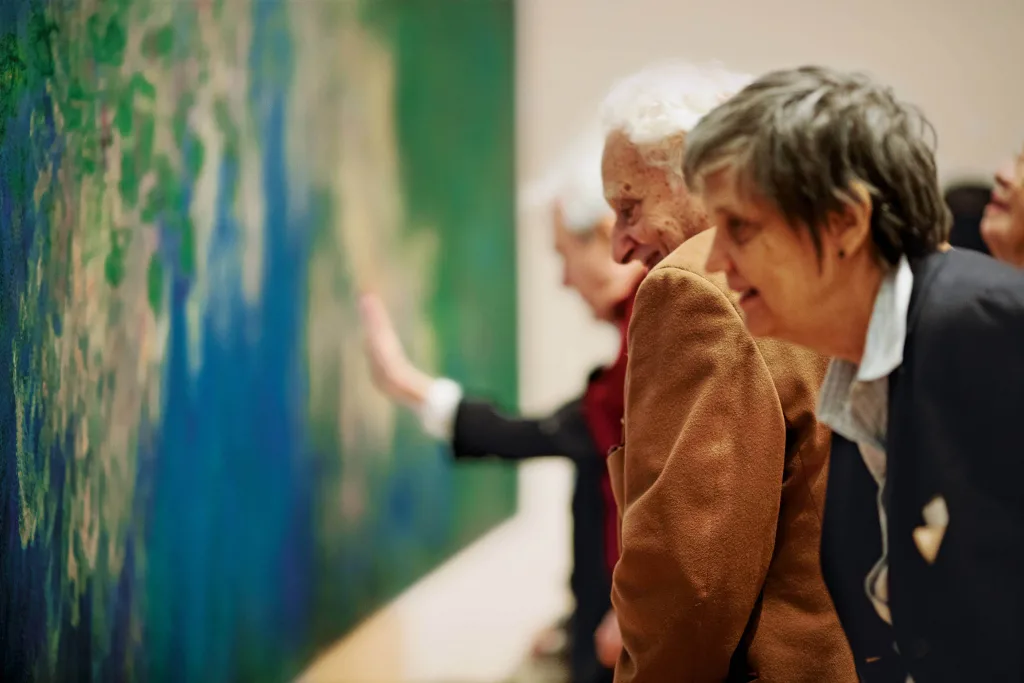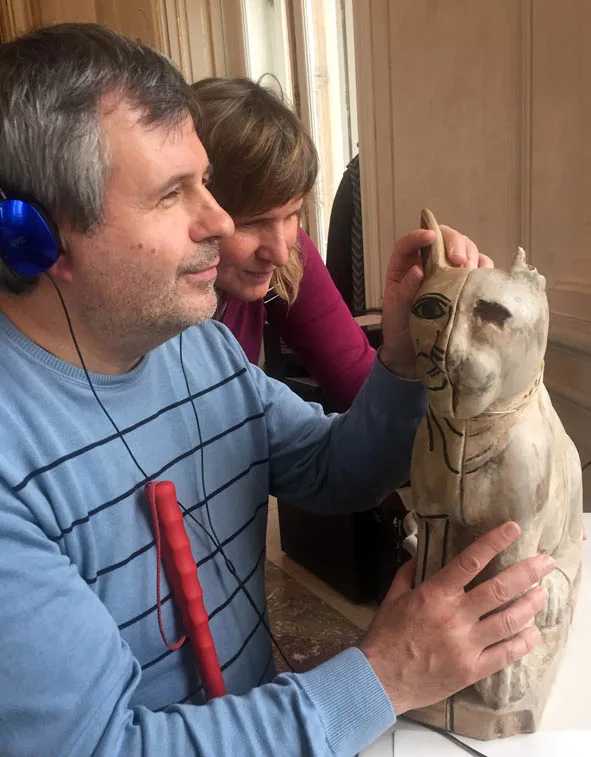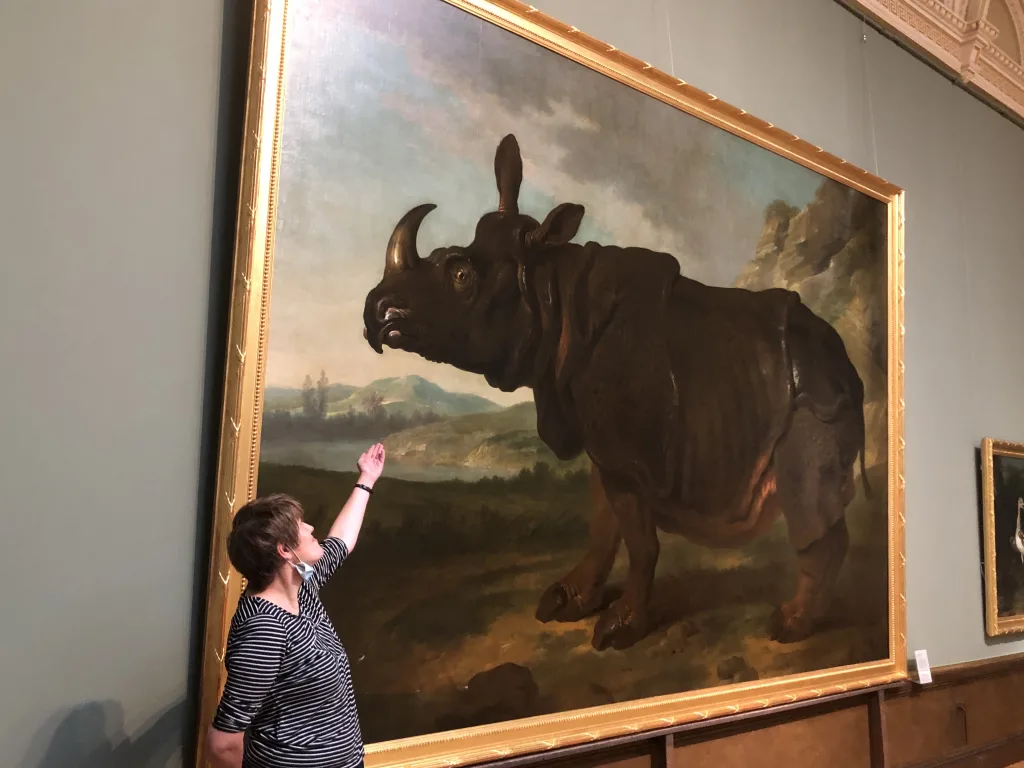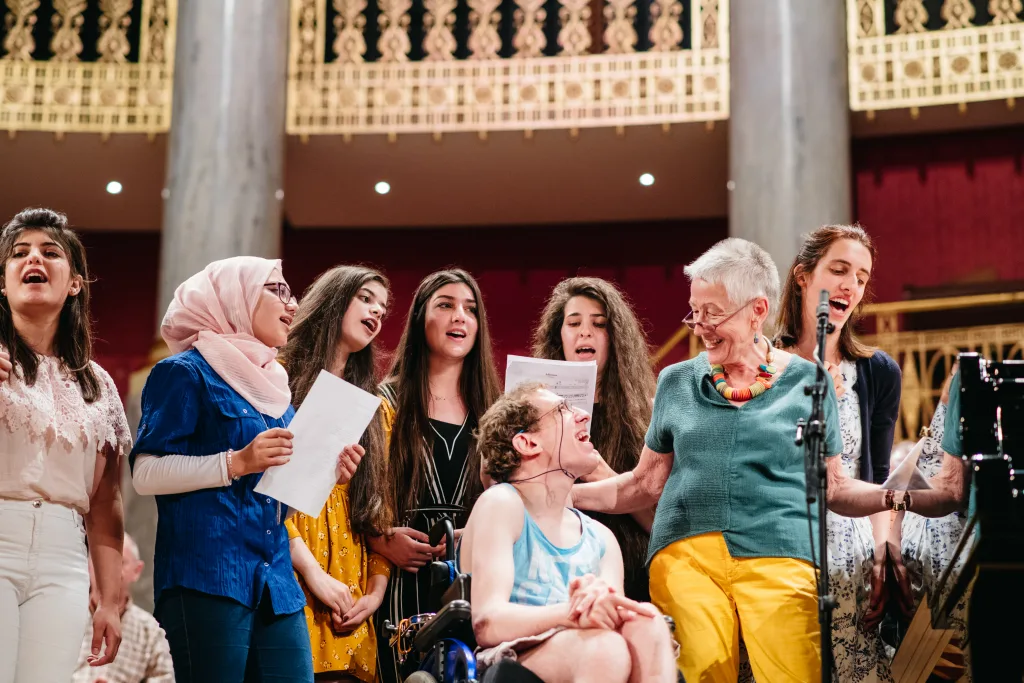Pioneers such as the MoMA, the Manchester Museum, capito Mecklenburg-Vorpommern or the KHM and the Konzerthaus in Austria show how art and culture can be made accessible to everyone.
The Museum of Modern Art (MoMA) in New York's art offerings for people with disabilities date back to the 1940s. At that time, the War Veterans' Art Center was created, offering free art classes to disabled veterans, reports Francesca Rosenberg, Director of Access Programs and Initiatives: "MoMA continues this legacy by providing direct access to art for thousands of people with disabilities each year."
A MoMA for everyone
Accessibility and equal opportunity are so important at MoMA that an Accessibility Task Force was established, including representatives from all departments and areas of the museum. Rosenberg: "Making art accessible to as many people as possible can be a wonderful opportunity to think about exhibition design and the way visitors experience art."

In 2018, MoMA received a Zero Project Award. MoMA also participated in the first Zero Project Impact Transfer program, which aims to act as an accelerator to support innovative and scalable solutions for a barrier-free world.
Art to touch
The Manchester Museum was one of the Zero Project Awardees in 2014, having been honored for the interactive research project "Haptic Probos." It was initiated in 2008 by Sam Beath, now Conservation and Collection Care Manager at the University of Manchester Museum. Beath: "The development actually began in the 1990s, when we were researching innovative 3D scanning and haptic technologies at the National Liverpool Museum."

Initially, the focus was on conservation applications. "But we soon realized that this could provide museum visitors with physical access to faithful replicas of objects and that this could also lead to innovative approaches to inclusion," Beath recalls. By 2017, four objects had been added to the Probos library, including Gustav Klimt's "The Kiss" – a project realized as part of an Erasmus+ project with the participation of Austrian, German, and Slovak partners.
Inclusive art education
capito Mecklenburg-Vorpommern (capito MV), a specialist in accessible communication, trains people with disabilities to become art educators in museums together with the State Museum in Schwerin and was awarded a Zero Project Award for this in 2020. By 2022, eight people had been qualified at the State Museum in Schwerin and the Palace Museum in Ludwigslust in Mecklenburg-Vorpommern.

A full-time qualification program is currently being developed, reports Nils Wöbke, director of capito MV: "The project demonstrates its social and individual impact in a variety of ways. People with disabilities work at a public museum location and pursue a qualified, public, and visible role. This project provides people with disabilities with new access to education, volunteering, and the world of work." Interested museums can utilize the knowledge and experience gained from the project through workshops or training courses. As part of the 2020 Zero Project Impact Transfer Program, a prototype for an inclusive qualification manual was also developed.
Pioneering work from Austria
In Austria, the Kunsthistorisches Museum (KHM) is one of the pioneers of inclusive art education, reports Rotraut Krall, Head of the Art Education Department at the KHM Museum Association: "As early as 1952, the then Director of the Egyptian and Near Eastern Collection invited blind people to touch objects wearing gloves." In 2010, according to Krall, this thread was taken up again with her appointment: "It was recognized that inclusive art education was becoming very important and a separate position was created for it." One of her first projects was the creation of tactile reliefs of works from the Gemäldegalerie - an idea she developed together with the Vienna-based VRVis Center for Virtual Reality and Visualization Research GmbH.

Further ideas and projects followed, such as the inclusive museum book "Gemeinsam anders sehen!" (Seeing things differently together!), until the KHM was invited to participate in ARCHES ("Accessible Resources for Cultural Heritage EcoSystems") in 2016. The project, funded by the EU as part of HORIZON 2020, brought together twelve European partners from the fields of culture – including six of the leading museums –, technology and science, as well as people with disabilities, to "jointly identify and develop innovations that make visiting cultural institutions easier for people with disabilities," says Krall. In addition to the implementation of further reliefs and tactile museum maps, an app was developed to support navigation and learning about the exhibits in the museums. In 2020, ARCHES and the KHM were awarded a Zero Project Award.
Where music connects everyone
The Vienna Konzerthaus will receive a Zero Project Award in 2023 for its inclusive "Summer Music Week," which began in 2019. True to the motto "Music connects," the free program is aimed at everyone and aims to "enable a lively and authentic dialogue between stage and audience, regardless of social background and education, ethnicity, or disability," explains Mira Possert, Education Manager at the Vienna Konzerthaus. Not even an instrument is required to participate; all that matters is enthusiasm for music.

Participants can choose between workshop groups with different content. However, the first four days begin with a shared session, and lunch is also intended to encourage interaction and foster creative collaboration. On the fifth day, rehearsals for the final evening concert take place, and the ensembles are formed. Possert: "This reveals that the group's apparent heterogeneity is one of its greatest strengths."
by Friedrich Ruhm Perdomo